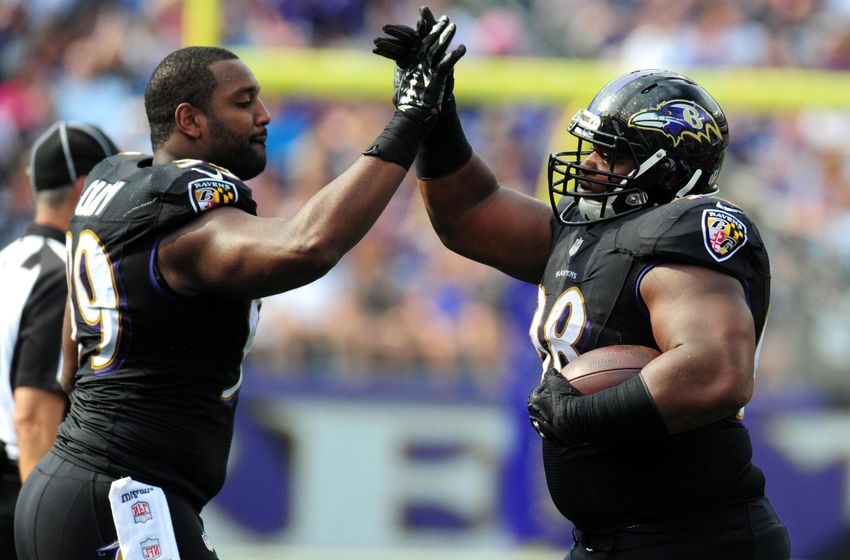The Cap Doctor Answers Your Ravens Salary Cap Questions
Q. So, now the Ravens expect to get a Comp pick for Tyrod Taylor. Of course, they are going to get a Comp pick for a starting QB, why would anyone expect otherwise?
ANSWER: Well, yes and no. Remember, when Buffalo signed Taylor, they signed him to a minimal base contract with the opportunity to compete for a starting job. Had he been expected to be a starter – and a good one at that – he would have gotten a much bigger, better contract – either from Buffalo or elsewhere.
And, that’s the key. When it comes to Comp picks, too often the focus is on the result, when that’s not really the aim of the Comp pick formula. The aim is to compensate teams when they lose a known valuable player. And, the measure of that is the type of contract the player is able to get from his new team. Losing a player for a minimal deal, who then blossoms elsewhere, in theory at least, means that the team that lost the player doesn’t deserve major compensation because that player wasn’t as important, given that he would have been easy to re-sign. Plus, if the player blossoms elsewhere, why should the team that lost the player be highly compensated?
Or, at least, that’s the theory under which the Comp pick formula operates.
Now, obviously a back-up QB is a bit of a different situation, but the application of the Comp pick formula is aimed at compensating a team for losing a player they don’t want to lose. In Taylor’s case, his contract could have easily been matched (remember the Ravens ended up paying his replacement, Matt Schaub, $3M). In fact, Taylor has said that he was close to returning, at least until Buffalo’s offer came along. What the Ravens couldn’t have provided though was the opportunity to compete for a starting job.
Q. Do you have a player who could be a surprise cut or cap casualty that no one would expect to see released?
ANSWER: I think most of the most likely candidates for release or have already been pretty much discussed, but I will throw out one more name – Safety Will Hill. Part of this thought is the fact that later in the season, Hill seemed to see the field less and his play seemed to decline a bit as well. Perhaps this was just due to the Ravens’ efforts to get Lardarius Webb some time at Safety, but it did seem a bit perplexing and it’s possible, although unlikely that Hill could be a cap casualty.
But if push comes to shove and the Ravens need to find Cap space – especially if they either aren’t able to get a new deal done with Joe Flacco or they decide to push off the “Flacco decision” until 2017 – releasing Hill does provide $3M in Cap savings. That’s not an insubstantial amount and does provide a decent chunk of Cap space.
And, again, if something doesn’t happen with Flacco, they are going to be looking to find ways to create Cap space.
Q. The Ravens don’t seem to be very creative with their contracts, why is that? Would there by better ways they could construct some of their deals?
ANSWER: I would agree that the Ravens haven’t really dabbled too much in contracts that include a lot of workout bonuses, game day roster bonuses or the like. For the most part they have crafted straight contracts, without a lot of fluff. A lot of that has probably had to do with the fact that they have been up against the Cap for the last few years and kind of forced them into back-loaded Cap number deals to lessen the immediate impact of the new deal.
That said, with some recent deals, they do seem to be attempting to get away from the type of deal that has gotten them in trouble in the past – i.e. contracts with greatly back-loaded Cap numbers (Ngata, Flacco). The deals for Dennis Pitta, Eugene Monroe and Marshal Yanda have been written with more of a flat structure with not as much of wild swing in yearly Cap numbers. While two of those deals haven’t turned out so well – Pitta and Monroe – it really isn’t the structure that has been the problem.
One thing they have done recently – and this goes hand-in-hand with their love of Comp picks – is to follow the Patriots model of inserting a true Option into contracts, which if declined allows the player to still be a loss for Comp pick purposes if he signs elsewhere. The distinction involved is that the player isn’t actually released, but the option to extend his contract into future years is declined. While that’s a very fine distinction, it does allow the player to be considered a UFA loss under the Comp pick formula.
The Ravens used this Option mechanism in the contract of DE Chris Canty and it is expected that the team will likely decline the Option, making Canty a free agent. As such, Canty signing elsewhere will give the Ravens a +1 in terms of Comp picks earned.
Q. Should the Ravens be looking to sign Brandon Williams to an extension this offseason? Is there any reason to wait?
ANSWER: There are really only three possible reasons to wait – (1) they want to get one last cheap year (i.e. last year of rookie deal) out of Williams before signing him to an extension next year; (2) Williams doesn’t want to sign an extension and wants to wait until he’s a free agent next spring before agreeing to a deal or (3) the sides just can’t come to an agreement on a new deal.
 The last player the Ravens signed “early” – i.e. during the offseason before the player is set to become a free agent – was CB Lardarius Webb in 2012. In the early years of the franchise, the Ravens signed a lot of their key players – Ray Lewis (x3), Jon Ogden (x3), Peter Boulware, Todd Heap, Ed Reed, etc. – “early”, but for whatever reason, with the exception of Webb, they haven’t done so recently.
The last player the Ravens signed “early” – i.e. during the offseason before the player is set to become a free agent – was CB Lardarius Webb in 2012. In the early years of the franchise, the Ravens signed a lot of their key players – Ray Lewis (x3), Jon Ogden (x3), Peter Boulware, Todd Heap, Ed Reed, etc. – “early”, but for whatever reason, with the exception of Webb, they haven’t done so recently.
It seems that, more and more, teams are willing to wait and get the most out of the cheap years of a rookie deal. Similarly, players (and agents) often want to maximize their value and may not be want to re-sign until they hit the free agent market (or just prior thereto).
The only team that presently makes it a practice of re-signing players early is the Eagles (who have continued to do so this offseason already).
In Williams’ case, if they do sign him to an extension, it wouldn’t likely be until the summer, after they’ve basically set their roster and know how much Cap space they have remaining. Given that Williams’ 2016 Cap number is a modest $1.8M, any extension is going to cause that Cap number to increase. In a year that the team is expected to be tight against the Cap, that may make it difficult to find the necessary Cap space to accommodate a Williams’ extension.











